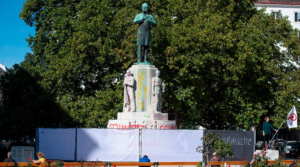Independent UN human rights experts on Thursday called on authorities and political candidates standing in next month’s general election to foster an enabling civic space to ensure the vote goes ahead peacefully, and prevent violence.
“Civic space, public participation, fundamental freedoms and a violence-free environment are critical to foster inclusive engagementin the electoral process, and the exercise of political rights,” the experts emphasised in a press release from the UN human rights office OHCHR, as the East African nation prepares to go to the polls on 9 August.
Political tensions during the campaign as well as hate speech by candidates and their supporters, have a dangerous potential to ignite flames of violence, said the experts.
They urged all parties to uphold the right to political participation, freedoms of assembly, opinion and expression, and to respect the role of an independent judiciary.
Code of conduct
“All those involved in the electoral process must commit themselves to peaceful conduct prior, during and after elections. Candidates and political parties must refrain from using inflammatory language which may lead to violence and human rights abuses, particularly against women, persons with disabilities, LGBTIQ+ individuals or ethnic groups,” they said.
Kenya has a history of contested elections and political violence, marked by human rights violations, including loss of life, as well as sexual and gender-based violence, the experts noted.
In the aftermath of the 2007 ballot, more than 1,000 people were killed and 350,000 displaced in ethnic riots. Both then rival presidential candidates Uhuru Kenyatta and William Ruto were summoned to the International Criminal Court (ICC) to face charges of crimes against humanity. Charges were eventually dropped against Mr. Kenyatta, and Mr. Ruto’s case was dismissed.
Lack of accountability
“Perpetrators who committed human rights violations during past elections are yet to be held accountable,” the experts noted.
Concerned by the impact of repeated violence during past elections denying the right to political participation – particularly for women candidates and voters – the independent experts urged Kenyan authorities to ensure everyone can participate freely in the electoral process, without discrimination.
At the same time, activists, human rights defenders, election monitors and journalists should be allowed to work without intimidation or reprisals. “They play a crucial role during elections to contribute to a free and inclusive electoral process and the credibility of results,” the experts recalled, welcoming the commitment by authorities to refrain from communications shutdowns during the election period.
Familiar faces
The leading candidates are former Prime Minister Raila Odinga who has been endorsed by former rival and current president, Mr. Kenyatta, and Mr. Ruto, who is the current deputy president.
Kenya’s election law requires that a presidential candidate win more than 50 percent of the vote for an outright win. This presidential election will be Kenya’s third under the constitution established in 2010.
The independent rights experts who issued the statement receive their mandates from the UN Human Rights Council, which is based in Geneva.




